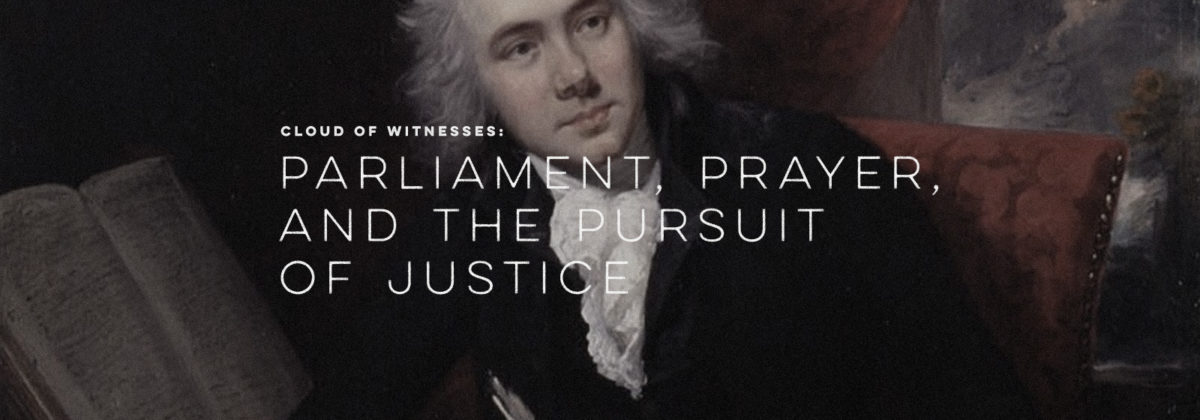Douglas Todd, the Religion Reporter for the Vancouver Sun, recently wrote an article entitled, Liberal Christianity – 10 things to know about this ‘middle way.’ In the article he claims that Liberal Christianity is the faith practiced by most mainline Protestant and even many Roman Catholic Christians in North America. He outlines 10 points of Liberal Christian belief on topics ranging as widely as Jesus, sex, social justice and death. This current series, Classical Christianity – 10 things to know about this ‘ancient way,’ is our response to his article. Although there are some things that Classical Christianity can affirm in each of Todd’s 10 points, there is also much that must be added to, or rejected completely.
Today, we will continue with the fourth point of Liberal Christianity: Embracing Evolution. Douglas Todd writes:
“Liberal Christians are definitely not Creationists (neither is every conservative Christian). They don’t believe schools should teach God formed the world in six days, etc. Instead, liberal Christians are environmentalists who have expanded Charles Darwin’s evolutionary theories into a metaphysics, often called process theology or panentheism. Some of liberal Christianity’s biggest names are evolutionary theists such as Pierre Teilhard de Chardin, John Cobb, Michael Dowd, Sallie McFague, Ian Barbour and John Haught. Liberal Christians want to learn from scientists and want scientists to learn from philosophy and spirituality.”
This reflection visits the relationship between evolution and Christianity. Is Liberal Christianity the only expression of Christianity that does not see the Bible and science as rival, irreconcilable accounts of human origins? Before saying anything else, let me thank Todd for bringing a timely, general reminder that a wholesale rejection of evolutionary science is not required to be a Christian. Christians should celebrate, heed, and integrate the insights of evolutionary biology. And not just Liberal Christians. I count myself among those Christians who believe that evolutionary biology yields important insights about human development. I have a number of Christian friends working in the sciences—much better informed than me!—who also maintain this posture.
There are, of course, some varieties of Christians—notably American fundamentalists—who are suspicious and hostile towards the enterprise of evolutionary biology. Yet, such sentiments seem to be slowly abating. An increasing number of Classical Christians (creedal, Roman Catholic, evangelical) are not only receptive to the insights of evolutionary biology but are even leading practitioners and theorists on the interchange between theological and scientific construals of humanity’s origins.
Streams outside of Liberal Christianity also have a number of big name evolutionary theists. One has but to think of Francis Collins, head of the National Institutes of Mental Health in the United States. He is a self-identified evangelical. Alastair McGrath, of Oxford University, and Denis Alexander of Cambridge also come to mind. Or of some of the professors at Vancouver’s own Regent College, who are affiliated with the Biologos Foundation (an institute that contemplates the interface between theism and evolutionary development).
In the realm of theology, other names come to mind. Though associated with fundamentalism, the late B.B. Warfield (of Princeton) saw no insurmountable wall between his biblical convictions and Darwinian evolution. A similar receptiveness to the gains of science was championed by the renowned Scottish theologian T. F. Torrance. More recently, I think of Rowan Williams, former Arch-bishop of Canterbury and N.T. Wright of St. Andrews University. Together with others, these Christians—who would avoid the label “liberal”—believe that a measure of harmony can be discerned between the claims of Christianity and observations from natural science.
Liberal Christianity is not alone in its hospitality towards the insights of evolutionary science. So is there a difference between it’s posture towards evolution and that of those who fall within the bounds of Classical Christianity?
Liberal Christianity is more inclined to subject some of the basic pillars of longstanding Christian doctrine to science. Theology bends to science before science yields to theology. Todd alludes to this Liberal Christian manoeuvre in his reference to the importation of “Darwinian metaphysics.” This means that a scientific discovery serves not merely as a naturalistic explanation for the natural world, but as a basis for making claims that cannot be tested (see Step 4 of the Scientific Method). When this step is taken, one has crossed over from science to philosophy. Evolutionary metaphysics is not in itself science though it operates under this guise.
The world, with all of its splendour, mystery, and genius, should incline those who explore it to marvel, praise, and celebrate God.
My friends who are scientific practitioners are leery of such moves. So is Classical Christianity. This is not because of some compulsion to smack down science with the Bible. Rather, it owes to other factors, including: 1) an unease with allowing scientific observations to be blithely translated in philosophical, pseudo-religious statements, while yet enjoying the formal status of “science” and 2) the assumption that mutuality exists—even though it is not always self-evident—between truths found in creation and truths revealed in Scripture. There is, of course, the ready acknowledgment that nature and Scripture deal in different cards. They don’t necessarily illuminate the same truths.
On this view, it would be impossible for a purely scientific evolutionary theory (e.g. the slow gradual change of simple life to more complex) to exist in permanent conflict with Scriptural affirmations of the creatorship of God. Any major tension in this arena could only result from an “evolutionary metaphysic” (to use Todd’s term) being smuggled into a scientific comprehension of the world. This constitutes what might be termed atheistic naturalism. Such an stance is, understandably, problematic for Classical Christianity. Furthermore, as several scientists have reminded me, it abuses the promise of evolutionary science. It morphs a purely scientific explanation of complex biological life into a philosophical, pseudo-religious system.
Let me offer a brief example. Recently, I spoke to an evolutionary theorist. In explaining the human need and desire for love, he contends that this trait has its basis in a past need for survival and well-being. So, you and I yearn for and desire love because this trait was somehow expedient for our distant ancestors. When such an explanation claims not just to be a scientific account of love but the only valid understanding of love’s origin, Classical Christianity will become uneasy. Its adherents will want to insist that love is not just a by-product of evolution but instead has its basis outside of the theatre of humanity. Love is rooted in the Trinitarian nature of God, whereby the Father, the Son, and the Holy Spirit exist in an eternal state of perfect love. It was out of the state that God created humans, as beings capable and desirous of love. In this sense, Classical Christianity will be especially proactive to defend a theory of love that refuses to remove God from the equation.
Christians of a creedal or evangelical ethos—those who exhibit reverence towards the touchstones of historical Christian orthodoxy—are hesitant about any mode of science that makes the personal, powerful, and present God of the Bible into an irrelevant concept. This caution does not negate their receptivity towards evolutionary science. It does not undermine their serious interaction and integration of its claims in contemplating human development. But it does instil an instinct: caution towards any allegedly comprehensive explanation of the human condition which functionally eliminates God.
The purpose of creation, and the science which helps us map it, should be regarded as just the opposite. The world, with all of its splendour, mystery, and genius, should incline those who explore it to marvel, praise, and celebrate God. It should stir a desire to know God. When science—evolutionary or otherwise—negates this possibility, Classical Christianity will be compelled to raise an objection. I am not sure if the Liberal Christian would be equally as disturbed. Rather than whole-heartedly embracing evolution and science, Classical Christianity engages evolution and science.
In our next post, Alastair will respond to the fifth point of Liberal Christianity: Abortion, homosexuality and other not-so-hot-button issues.




